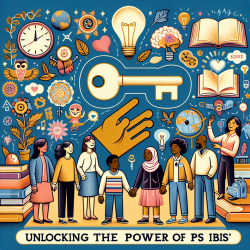The Integrated Tiered Fidelity Inventory (TFI) Companion Guide represents a beacon of hope and a tool for transformation within the educational landscape, especially during the tumultuous 2020-2021 school year. As educators and administrators strive to navigate the complexities of our current times, the importance of fostering a prosocial, supportive, and inclusive community has never been more paramount. This guide serves as a lighthouse, illuminating the path towards integrating cultural responsiveness and mental health support within the Positive Behavioral Interventions & Supports (PBIS) framework.
At its core, the guide is designed to enhance the implementation of PBIS with a sharp focus on social, emotional, and behavioral (SEB) interventions. These interventions are critical in creating environments that not only support effective instruction but also lay the groundwork for mental health prevention and equitable outcomes for all students.
Here are some key highlights and actionable steps outlined in the guide:
- Team Composition: Successful implementation starts with a diverse Tier 1 team, including members who bring a wide range of expertise from behavioral, mental health, coaching, and academic backgrounds. This team is a microcosm of the school and community it serves, ensuring a broad perspective is considered in decision-making processes.
- Behavioral Expectations: The guide emphasizes the establishment of five or fewer positively stated behavioral expectations. These expectations are not only consistent and culturally relevant but also aligned with SEB curriculum standards, promoting positive relationships and clear communication.
- Teaching Expectations: It advocates for the direct teaching of expected academic and social behaviors across all campus settings. This includes modeling, practicing, and reinforcing these expectations to ensure they are understood and embraced by all students.
- Discipline Policies: A shift towards proactive, instructive, and restorative approaches to student behavior is encouraged, moving away from punitive measures. This approach prioritizes the mental health and wellness of students and staff, fostering a more supportive school environment.
- Professional Development: The guide underscores the importance of ongoing professional development in foundational PBIS practices, cultural competence, and trauma-informed care, enhancing the ability of staff to support students' SEB skills effectively.
- Community Involvement: Engaging families, students, and community members in the PBIS process is vital. Their input helps ensure that the implementation is culturally relevant and meets the unique needs of the community.
- Data-Driven Decision Making: Regular review and use of discipline data, as well as SWPBIS fidelity data, are essential for informed decision-making. This data helps identify areas of need, monitor progress, and adjust strategies to maximize effectiveness.
Implementing PBIS with fidelity while actively engaging and elevating stakeholder voices creates a foundation for a supportive community that is conducive to learning and growth. The Integrated TFI Companion Guide is an invaluable resource for school teams, coaches, and trainers aiming to meet the complex needs of students and staff through a culturally responsive and mentally healthy PBIS framework.
For more information, please follow this link.










